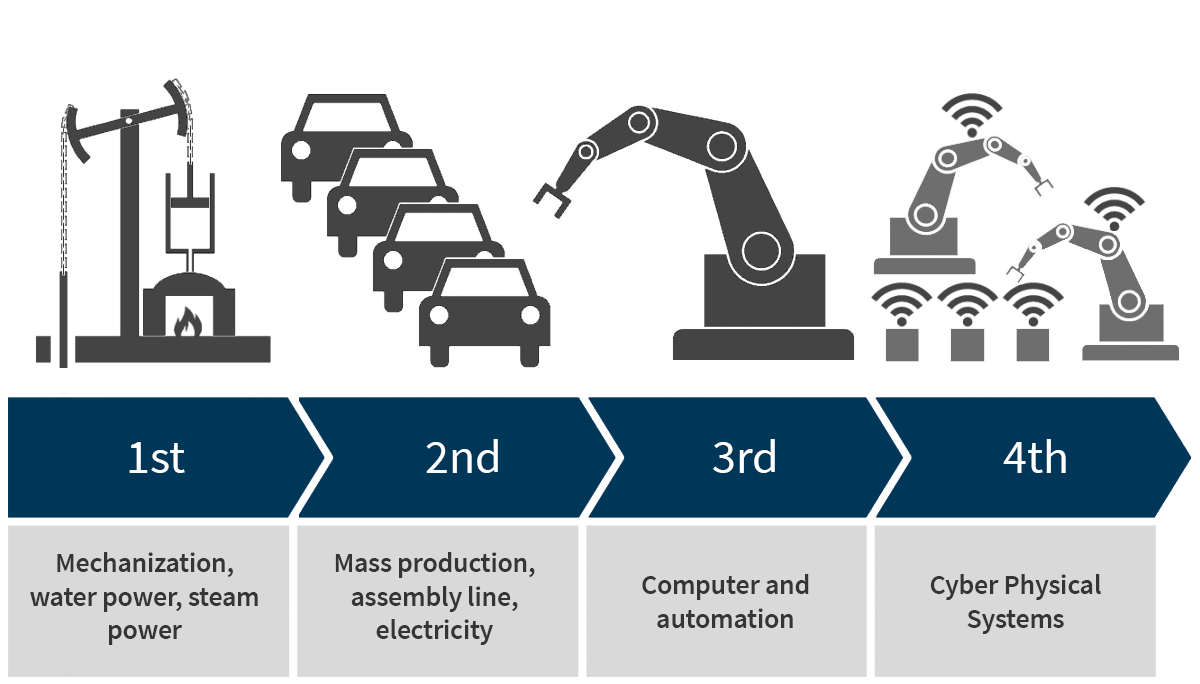About Digital Manufacturing
About Digital Manufacturing
Digital Manufacturing is the application of digital technologies as the means to plan, assess and operate a manufacturing system. Digital Manufacturing requires that the right information, is in the right place, at the right time, in the right format for the optimization of decisions and the efficient manufacture of a product.
Companies are actively looking into the use of digital technologies in their operations as the 4th industrial revolution grows across the globe (Figure A). The abundance of competing information available about Digital Manufacturing may create confusion for those seeking information.

Figure A. The Evolution of Industry
Whether you call it Digital Manufacturing, Industry 4.0, Smart Manufacturing or Smart Factory, the terms are all describing a set of capabilities that make significant use of digital processes, procedures and cyber-physical systems. Part of the confusion in the marketplace is a result of the lack of consensus about what Digital Manufacturing is and how it relates to Smart Manufacturing, Smart Factory, Industry 4.0, or simply Advanced Manufacturing. There are many attempts at a definition available, but here we simply propose an explanation what Digital Manufacturing involves.


